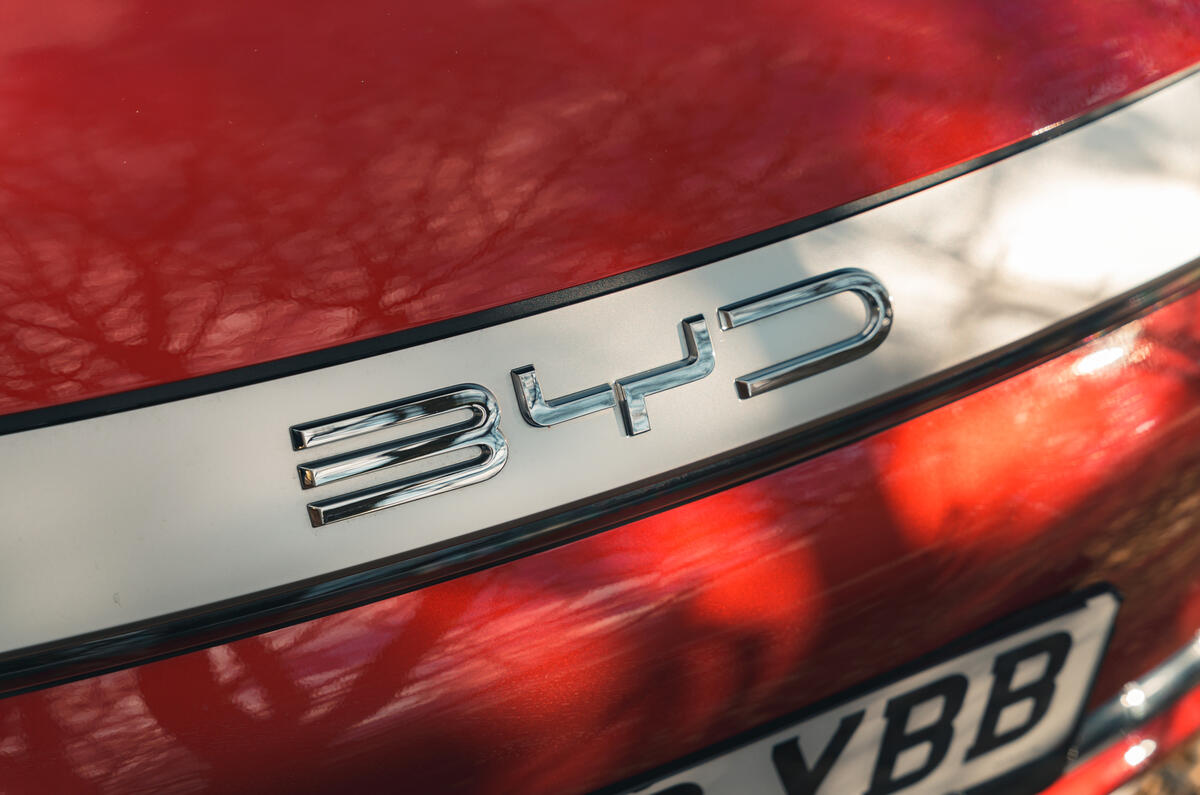BYD is looking to break the 1200-mile range barrier with its next petrol-electric cars, which are set to adopt a fifth-generation plug-in hybrid system and a fourth-generation EV platform.
The new range-busting PHEV system, elements of which are expected to be revealed at the Beijing motor show in April, is an evolution of the Dual Mode (DM) system used throughout the current BYD line-up.
The Chinese manufacturer launched the DM system in 2008 and has continually updated it with new technological advances ever since.
The fourth-generation system used by PHEVs sold outside the UK – including the latest version of its best-selling SUV, the Song Plus – comes in two forms: efficiency-led DM-i and more performance-focused DM-p.
Both use a 110bhp turbocharged 1.5-litre four-cylinder petrol engine running on the Atkinson cycle, in combination with a 177bhp synchronous electric motor and a CVT.
Buyers can choose an 8.32kWh or 18.32kWh LFP battery with the DM-i model, which is claimed to offer a range of up to 715 miles on China's CLTC test cycle. The petrol tank's capacity is 60 litres.
The initial version of BYD’s fifth-generation PHEV system, set to be launched in 2025 cars, is claimed to build on the strengths of the existing DM-i system with key developments brought to its engine, motor and battery.
Although the fuel tank and battery capacity parameters are yet to be revealed, it's said to offer scope for a range of up to 1243 miles, depending on the model - suggesting either a drastic increase in the size of the battery or fuel tank, and possibly the potential for the system to operate as a 'full hybrid' when the traction battery is depleted, boosting the efficiency of the combustion engine.
The new PHEV system is set to be combined with a new generation of BYD’s widely used ePlatform.
Current BYD models are based on the 3.0 ePlatform, launched in 2021. Models running the new PHEV system will be based on a more advanced 4.0 ePlatform – which will also be used by BYD’s next generation of EVs.
Although BYD exclusively sells electric cars in the UK at present, more than half of its 3.02 million global sales in 2023 were PHEVs.
News of BYD’s plan to significantly extend the range of its PHEV models comes after its management team revealed it has instigated a new three-year business strategy.
It aims to further strengthen BYD’s position at the head of global sales for electrified vehicles (PHEVs and EVs combined).




Join the debate
Add your comment
It appears that there's already a problem with Chinese cars.
The availability of spare parts for replairs after breakdowns and accidents
Of no real world advantage, cars already have the ability to go 2000 miles on a tank full if the manufacturer put a 150 litre tank in. As cars have got more efficient tanks have got smaller the reason, because the vast majority of people don't need a 700 mile plus range, they prefer the bigger boot and lighter car.
Each to their own, it might not suit you but I regularly set off on a 1,200 mile round trip in a week, to be able to set off from home with no worries about fuelling or charging would be great.
If you not worried about charging a phev overnight then it's even more of a waste of tech.